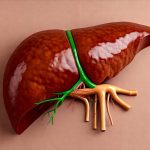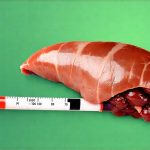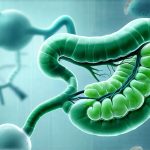Digestion is a remarkably complex process, often taken for granted until something goes wrong. It’s far more than simply breaking down food; it’s about extracting essential nutrients our bodies need to function, thrive, and maintain overall health. Many organs play critical roles in this intricate system, but one frequently overlooked player is bile – a fluid produced by the liver that’s absolutely vital for efficient digestion and absorption of fats, as well as playing a role in waste removal. Understanding its functions can illuminate how our bodies process food and highlight potential areas to support digestive wellness.
Bile isn’t just about fat digestion; it impacts nutrient uptake, detoxification processes, and even the overall balance within our gut microbiome. Disruptions to bile production or flow can lead to a variety of discomforts and potentially affect long-term health. This article will delve into the multifaceted role of bile in digestive health, exploring its composition, functions, and what happens when things don’t go as planned.
What is Bile?
Bile is a greenish-yellow fluid produced by the liver and stored in the gallbladder. It’s not an enzyme itself, but rather acts as an emulsifier – meaning it breaks down large fat globules into smaller droplets, making them easier to digest. This process significantly increases the surface area available for digestive enzymes (like lipase) to work on efficiently.
The composition of bile is complex, containing water, electrolytes, bile salts, cholesterol, bilirubin (a waste product from red blood cell breakdown), and other compounds. Bile salts are the key functional components responsible for fat emulsification and absorption. The liver constantly produces bile, while the gallbladder concentrates and stores it until needed during digestion.
Bile’s Key Functions
Bile plays a central role in several essential digestive processes beyond just breaking down fats. It is crucial for efficient nutrient absorption, especially of fat-soluble vitamins (A, D, E, and K) along with aiding in the elimination of certain waste products from the body.
Fat Digestion & Absorption
As mentioned earlier, bile salts emulsify fats, transforming large globules into smaller droplets. This isn’t breaking down the fat chemically; it’s physically changing its form to increase surface area. Once emulsified, pancreatic lipase can effectively break down triglycerides (fats) into fatty acids and glycerol, which are then absorbed through the intestinal wall. Without adequate bile, fat digestion is severely impaired, leading to malabsorption and potential deficiencies.
Cholesterol Metabolism & Waste Removal
Bile serves as a pathway for eliminating cholesterol from the body. The liver converts excess cholesterol into bile acids, which are secreted in bile. This helps maintain healthy cholesterol levels within the body. Furthermore, bilirubin, a breakdown product of old red blood cells, is also excreted via bile, contributing to waste removal and preventing its buildup.
Gut Microbiome Influence
Bile acids significantly influence the composition and activity of the gut microbiome. They can selectively inhibit the growth of certain harmful bacteria while promoting beneficial ones. This modulation impacts overall gut health and influences immune function as a significant portion of our immune system resides within the digestive tract. Alterations in bile acid flow or concentration can disrupt this delicate balance, potentially leading to dysbiosis (an imbalance in gut bacteria).


















